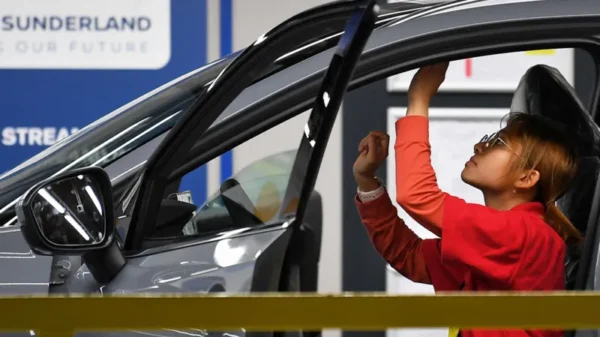Commuting sucks and new research proves it. A study conducted by the University of the West of England, “Commuting and Wellbeing,” suggests that long commutes are having a negative impact on workers’ mental health and job satisfaction.
The study, which was sponsored by the UK’s Economic and Social Research Council, was conducted between February 2016 and August 2017. The researchers used data taken from the UK Household Longitudinal Study (UKHLS), which has been surveying adults from 40,000 households across the UK since 2009. For “Commuting and Wellbeing,” researchers focused on six years of data, from 2009/10 to 2015/16.
According to the project summary, the researchers were principally interested in the change, over the selected timeframe, of workers’ commuting behaviors and how it may have impacted their general wellbeing. Wellbeing is defined as “the extent to which people’s lives are going well and is most often measured subjectively.”
Business Insider reports that in England, the average commute time has raised over the past 20 years, from 48 to 60 minutes. One in seven UK commuters will spend a minimum of two hours daily commuting to work. In the US, commute times are slightly shorter, averaging at around 50 minutes round-trip.
It isn’t that surprising then that researchers found, in the UK at least, that each additional minute of commuting time reduces not just leisure time, but job satisfaction as well. Those added minutes add strain and stress, negatively impacting workers’ mental health.
Note though that not all commuters are created equal, according to the study at least. Those who opt to bike or walk to work report higher job satisfaction than their bus and train riding peers.
I know this article is a bit old, but it's still relevant! https://t.co/0SpWFEyjzy Say no to a long #commute! Ask to #telework some days
— Alison Smith (@AlisonTeeSmith) November 1, 2017
Dr. Kiron Chatterjee, the principal investigator for the study and an associate professor of travel behavior, concluded that just adding 20 minutes to a worker’s commute can result in the same negative impact on job satisfaction as receiving a 19 percent pay cut.
Even though spending extra time on the train is not appealing to anyone, Chatterjee points out that many will still opt to do so if it means that a higher paycheck is the result. A higher-paying job, even with a longer commute, still seems to improve job satisfaction.
“This raises interesting questions over whether the additional income associated with longer commutes fully compensates for the negative aspects of the journey to work,” Chatterjee remarked via Business Insider.
What’s even worse than the strain commuting puts on our mental health? Well, according to Lydia Smith with Quartz Media, it’s also making us lonelier than ever.
“Millennials,” Smith writes, “are often maligned as entitled, work-shy snowflakes unwilling to go the extra mile for their professions.” However, this is probably not all that true; in fact, research points to the opposite.
Smith points out that a lethal combination of stagnant wages and rising house costs, which is the trend in not just the UK but elsewhere as well, are pushing young people further away from their jobs. Smith herself went through a period where she was traveling nearly 200-miles each week to get to work. The UK’s Trades Union Congress also believes that a “lack of investment in roads and railways” has also added to workers travel times.
According to a recent study, long commutes are bad for both health and productivity. https://t.co/ZJ5dL5ROE6
— Pete Birkner (@peteinsurance) November 2, 2017
This problem of getting priced out of locations close to work and increased commuting times is felt most acutely by a younger demographic, those aged from 20 to 35. Young Brits within this age range often spend about a third of their post-tax income on rent.
Young Brits and young Americans alike are suffering, in part, due to the aftermath of the 2008 Great Recession. According to a 2016 Resolution Foundation report conducted in the UK, young Brits are the first generation to earn less than their parents. Their American peers fare no better. A 2015 US Census unraveled that young Americans are earning $2,000 less on average than their parents did at the same age.
As a result, a younger generation is facing higher costs of living, lower wages (which leads to less disposable income) and longer commutes. The Netflix-and-chill generation is going out to socialize less and spending more times on social media to fill the void.
The downside is that spending more time on social media actually makes people feel lonelier. In fact, a University of Pittsburgh study discovered that young people between the ages of 19 and 32 who spend more than two hours a day on social media are actually twice as likely to feel socially isolated, or lonely. Even Robert Putnam, a political scientist at Harvard, suggests that a long commute is one of the most substantial predictors of loneliness.
Robert Putnam lists long commutes as one of the most substantial predictors of social isolation https://t.co/pyQ3c02IhI
— Harvard Kennedy School (@Kennedy_School) November 1, 2017
Considering that more and more people are being subjected to longer commutes to work, it might be about time that employers start offering telecommute positions or work-from-home scenarios as the new norm.
If a more flexible work schedule isn’t the option for you, try to make the most of your commute by meditating, listening to a podcast or reading a book.
Featured image via Pixabay
































































Comment Template